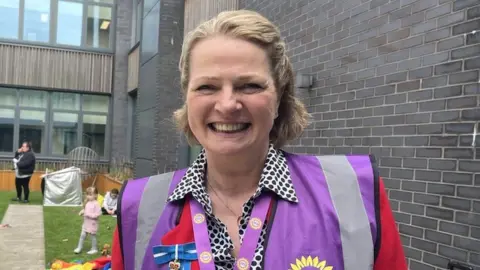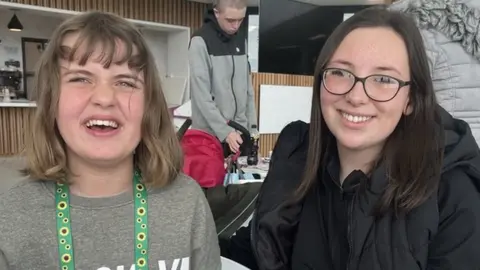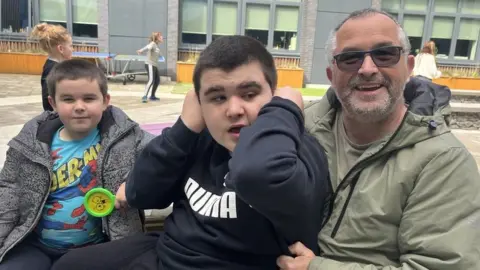New 'passport' helps disabled people get better service
 BBC
BBCA so-called disability passport has been launched so those who need it can get better service from businesses.
It's hoped the Piws scheme will let carriers easily communicate their needs when visiting tourist attractions.
The ID card, launched at Anglesey's M-Sparc science park, will bear symbols to show a wearer's requirements.
While the internationally recognised sunflower card already exists for those with hidden disabilities, there have been concerns it has been misused.
Piws, which means purple in Welsh, would be registered by either a GP or social services, to show individuals have the right to support.
Scheme founder Davina Carey-Evans has a 27-year-old son who has severe autism.
The mum of three said she spent years visiting attractions which turned out to be unsuitable for her family.
Businesses can sign up to join Piws for free and receive training to adapt and help those who need extra support.
This could include dimming the lights or turning off music for children with autism, or letting people who find it hard to queue skip the line for service.

Ms Carey-Evans said it was a quick, subtle, but visible way for businesses to see what visitors needed.
"We're trying to get an open conversation going. It's difficult for people with disabilities to go out as they can feel isolated so we're trying to change this," she said.
"It's really a disability passport and all the symbols on it explain without embarrassment what that person has or needs."
For children like Siwan, who has autism, it could prove beneficial.
Her support worker Ffion Elen Davies said people needed to be more patient sometimes.

"Siwan is so lovely but this is just going to help her so much," she said.
Paul Williams, who has an autistic son named Liam, also said visiting places could be hard when staff don't understand his requirements.
"If you let them know beforehand it helps the children, and they can accommodate us," he said.
If successful Piws, initially being trialled in north Wales, could be extended Wales-wide next year.
